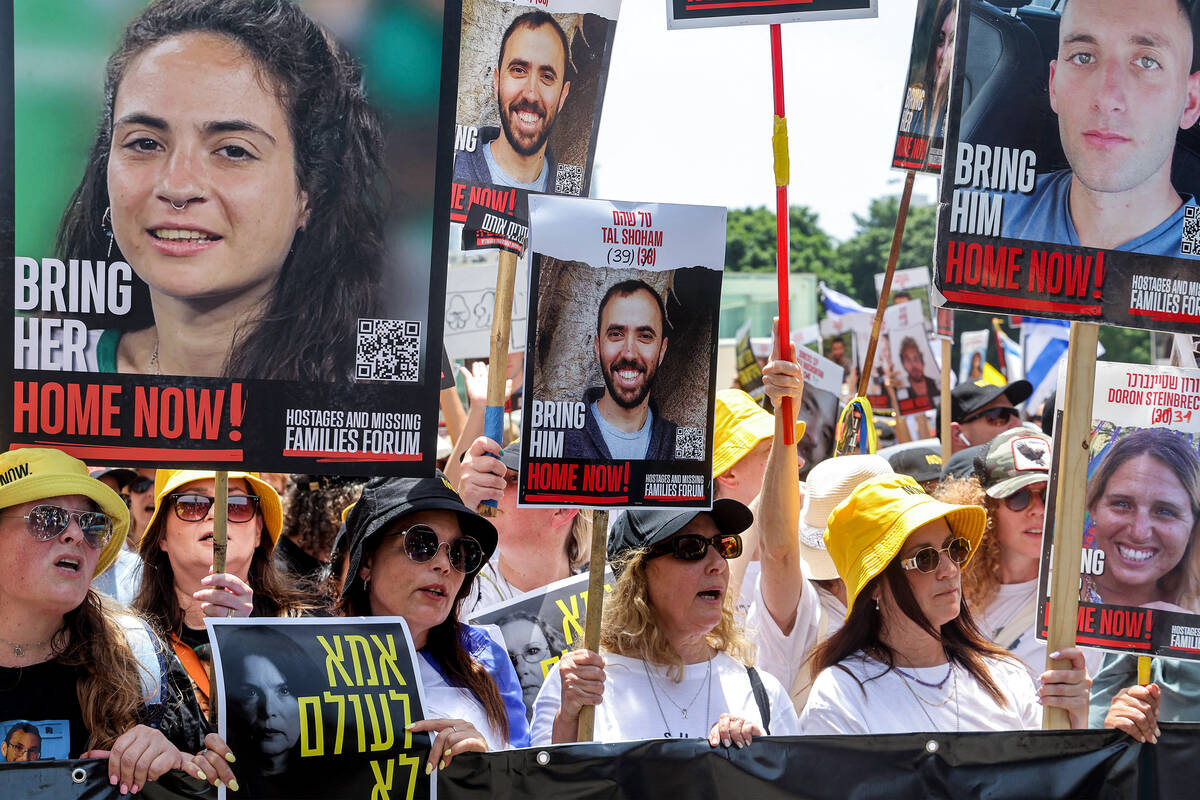Hamas hostage victims, families interviewed in terror probe
The U.S. Justice Department is interviewing survivors and families of victims of the Oct. 7 Hamas-led terrorist attack in Israel as it attempts to build a sweeping case against the terrorist group and its financial backers.
The individuals, including former hostages and families of U.S. citizens murdered abroad, have sat down with prosecutors and FBI agents in recent months, according to people familiar with the investigation. Some have traveled from Israel and provided videos and text messages to help authorities build a chronology of the attack and identify who carried out the kidnappings.
While part of the U.S. probe is looking at acts of terrorism, a broader focus is tackling the financial networks that have enabled Hamas. That includes examining any support from countries such as Iran and Qatar, and whether financing touched U.S. financial institutions or assets, one of the people familiar with the inquiry said. The investigation involves prosecutors from U.S. Attorneys’ offices in New York, Washington and the Justice Department’s Counterterrorism Section.
A spokesman for the Justice Department declined to comment.
U.S. citizens were among the approximately 1,200 people killed and 250 others taken hostage when Hamas-led terrorists poured into Israel and stormed towns, army bases and a music festival. About 31 Americans were killed on Oct. 7 and as many as six remain in captivity, giving prosecutors a way to pursue the crimes, even though they were committed overseas.
Hamas is designated a terrorist organization by the U.S., Canada and the European Union.
At the same time, U.S. support of Israel in the ensuing war has become a divisive issue for some voters ahead of the presidential election in November. Almost 38,000 Palestinians have been killed in Gaza since the war erupted, according to the Hamas-run Health Ministry in Gaza, which does not distinguish between combatants and civilians in its count.
The U.S. has put itself at the center of cease-fire negotiations in a bid to stop the conflict and prevent it spreading across the Middle East.
Qatar, which previously provided funding to Gaza in coordination, it says, with the Israeli government, and hosts Hamas’ political bureau, stepped up mediation when the war began. It’s been a go-between for Israel and Hamas for more than a decade.
The Gulf state helped broker the only truce in the war so far, a weeklong pause that saw more than 100 hostages released and ended at the start of December.
Iran has been targeted repeatedly by the U.S. over the years for supporting terrorist groups, and indictments were filed as recently as February against senior leaders of the Islamic Republic’s Revolutionary Guard Corps. Iran has long vowed to destroy Israel.
Iran, along with Syria, is also facing a new wave of lawsuits filed on behalf of hostage victims and their families for providing the fire power and financial support to enable the attack.
In cases where people facing criminal charges have been hard to detain, prosecutors have coupled indictments with civil forfeiture actions, allowing the government to seize assets. In terrorism cases, seized funds can be potentially redirected into a reserve for U.S. victims of state-sponsored terrorism.
Federal prosecutors in Washington and New York seized more than 500,000 barrels of oil and $108 million when they charged leaders of Iran’s Islamic Revolutionary Guards Corps in February with terrorism and sanctions evasion. The U.S. alleged funds from oil trafficking allowed Iran to support Hamas and Hezbollah, which has also been designated a terrorist organization by the U.S. Billions of dollars from the oil laundering network passed through the U.S. financial system, the government revealed at the time.






















